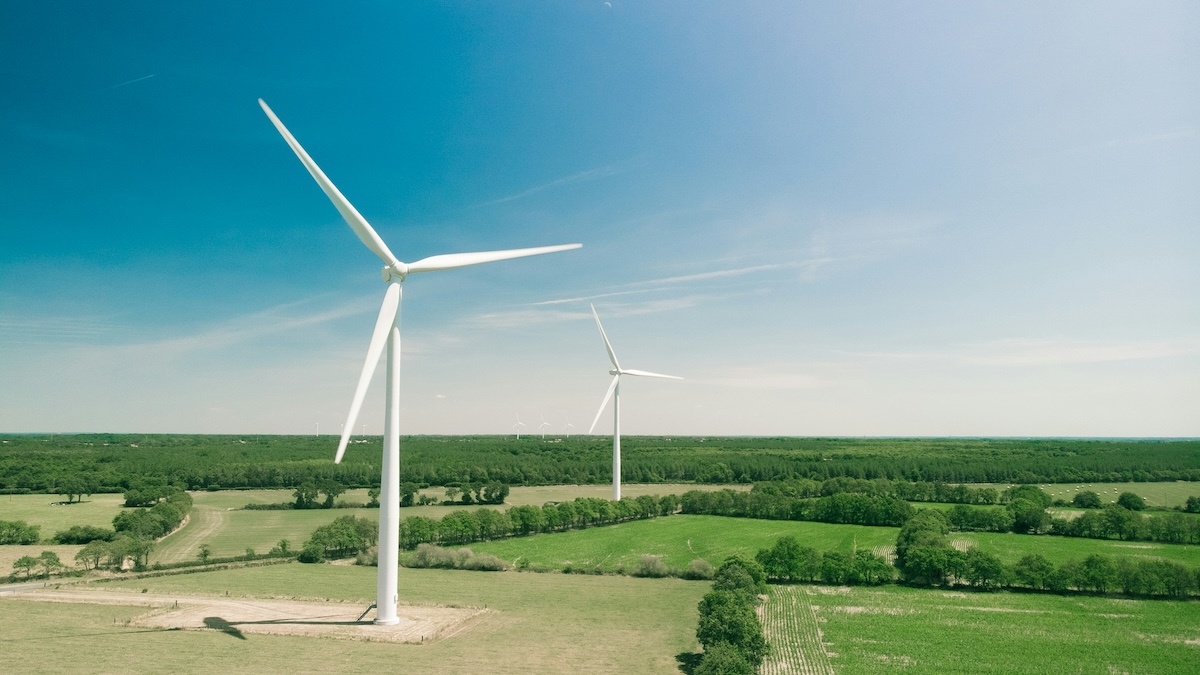Is Solar Energy Renewable or Non-Renewable [2024 Guide]
In the face of climate change and dwindling fossil fuel reserves, solar energy emerges as a promising alternative to traditional electricity sources. Solar power reduces our carbon footprint, decreases dependence on non-renewable resources, and can lead to significant cost savings over time. But is solar energy renewable? This question is crucial for assessing its long-term viability. The answer is a resounding yes - solar energy is renewable. Unlike finite fossil fuels, solar power harnesses the sun's continuous radiation, an essentially limitless resource. As long as the sun shines, we can capture and convert its energy into electricity, making solar power a sustainable solution for our energy needs far into the future.
What is renewable energy?
Renewable energy comes from sources that are naturally replenishing and virtually inexhaustible on a human timescale. According to the U.S. Energy Information Administration (EIA), "renewable energy sources are virtually inexhaustible in duration but limited in the amount of energy that is available per unit of time."
These sources include sunlight, wind, rain, tides, waves, and geothermal heat. Unlike fossil fuels, which deplete over time and have a finite supply, renewable energy sources can be consistently used without fear of running out. They also typically have a lower environmental impact, producing fewer greenhouse gases and pollutants.
The key characteristics of renewable energy are its sustainability and its ability to replenish naturally. This is why solar energy, which harnesses the power of the sun - an abundant and consistent source of energy - firmly falls into the category of renewable energy.

What is non-renewable energy?
Nonrenewable energy comes from finite resources that will eventually be depleted. According to the U.S. Environmental Protection Agency (EPA), "Nonrenewable energy sources are those that cannot be replenished in a short period of time."
The primary examples of nonrenewable energy sources are fossil fuels: coal, oil, and natural gas. These formed over millions of years from the remains of plants and animals and exist in limited quantities. Nuclear energy, while not a fossil fuel, is also considered nonrenewable because uranium, its fuel source, is finite.
Nonrenewable energy sources have been the backbone of industrial development, but their use comes with significant drawbacks. They are depleting rapidly, contribute heavily to greenhouse gas emissions, and often involve environmentally damaging extraction processes. The finite nature of these resources starkly contrasts with renewable sources like solar energy, highlighting the need for a transition to more sustainable power options.

Is solar energy renewable or non-renewable?
Solar energy is a renewable resource because the sun consistently provides energy on its own. Renewable energy comes from natural resources that replenish or “renew” themselves over time. Like wind and water, sunlight is a resource that can be harnessed repeatedly without depleting its availability. This makes solar power a sustainable energy source that we can rely on indefinitely.
To capture solar energy, photovoltaic cells in solar panels convert sunlight into electricity. These cells absorb sunlight and generate direct current (DC) electricity, which is then converted into alternating current (AC) for practical use. This process is natural and sustainable, relying solely on the sun's energy.
Solar energy is not only renewable but also a green energy source. While renewable energy refers to resources that can replenish themselves, green energy is defined as power that does not result in carbon emissions during production. Solar energy meets both criteria: it is renewable because the sun will always provide energy, and it is green because generating solar power does not emit harmful greenhouse gases like carbon dioxide.
The U.S. Department of Energy confirms this, stating that "solar energy is a renewable resource, meaning it is inexhaustible and will not run out as long as the sun exists." This official acknowledgment reinforces the idea that solar energy is both renewable and environmentally friendly, making it a crucial part of our clean energy future.
Why is solar energy renewable?
Solar energy has a far lower environmental effect than other non-renewable energy sources (such as coal, oil, and natural gas), which emit carbon dioxide and other damaging greenhouse gases into the atmosphere when burnt to create power.
According to the NREL (National Renewable Energy Laboratory) report, a solar system generates only 40 grams of carbon dioxide per kWh over its lifetime. On the other hand, a coal power plant generates over 1000 grams of carbon dioxide per kWh, which is much higher than the solar system. Even from this generic comparison, one can analyze the amount of harm a non-renewable source of energy has on the environment.
Given the environment-related benefits and reduction in electricity bills, most homeowners are planning to invest in solar panels or batteries to generate their own electricity.
How does solar power help the environment?
There are several ways in which solar energy helps the environment, from reducing the reliance on fossil fuels to emitting close to zero harmful gasses. Some of the most common benefits of choosing this clean energy are:
- Reduce Carbon Emissions: Renewable energy sources, specifically solar energy, lower dependence on fossil fuels, such as coal, oil, and gas. Recent studies have shown that these fossil fuels have become the largest contributors to global climate change. According to a report from the United Nations, these fossil fuels account for 75% of global greenhouse gas emissions and 90% of all CO2 emissions. So, when one invests in solar energy, they are directly investing in a way that promotes a sustainable lifestyle.
- Lower Electricity Bills: When residents or business owners opt for solar power systems, they reduce their reliance on the electricity grid, which leads to lower monthly electricity bills.
- Save Water: In addition to decreasing carbon emissions, solar energy also helps you conserve water. For example, water is constantly used to produce electricity from nuclear or fossil fuels. Some reports even suggest that coal mines and coal-fired power stations annually use approximately 380 billion liters of water. On the other hand, solar panels or related equipment require water only during the manufacturing process, making them more environmentally friendly.
- Minimal Ongoing Expenses: Solar power systems are low maintenance because they do not have any moving elements. Most solar panels, if appropriately racked, do not require any maintenance. One can even easily wipe off the dirt or debris stuck on them. With minimum effort and regular cleaning, one can use most solar panels for up to 25 years, which ultimately makes them a significant investment.
Solar panel systems can also be recycled, and their components can be repurposed to lower the overall carbon footprint.
Best Solar Panels for Beginners
There are several solar panels on the market, and when one decides to make environmentally friendly life choices, they often get confused about choosing the best solar panel to get clean energy. If this is your first time to invest in clean energy sources, you may consider the Renogy solar panels.
The 100 Watt 12 Volt Monocrystalline Solar Panel from Renogy is capable of generating 500Wh of electricity per day and is a great solution for off-grid applications. With these lightweight and portable solar panels, one can generate power in RVs, motorhomes, marine areas, or cabins.
This solar panel can also supply steady electricity during unexpected power outages or blackouts. It uses Grade A+ monocrystalline cells, which produce 22% higher power than average and are much more efficient than polycrystalline solar cells, which are generally used in other solar panels.
In addition, the solar panels from Renogy feature IP67-rated solar connectors and an IP65-rated waterproof junction box. So, you can easily power your low-to-mid-wattage appliances during extreme weather conditions.
FAQs about Renewable Energy
1. What is the difference between renewable and non-renewable energy?
As the name suggests, the primary difference between renewable and non-renewable energy sources is that renewable energy sources, like solar or wind, are limitless, while the non-renewable source of energy comes from finite sources, like fossil fuels.
2. What are the types of renewable energy?
There are different types of renewable energy, each derived from infinite natural sources like sunlight, wind, and even hydro. They are constantly replenished at a higher rate than they are consumed. Some of the most common renewable energy sources are solar, wind, hydro, geothermal, bioenergy, and ocean. Solar energy is one of the most abundant energy sources, and with the right solar panels, it can also be harnessed in cloudy weather. Each of these sources serves a valuable purpose that helps the environment and forthcoming generations.
3. What is the cleanest form of energy?
Solar energy is considered the cleanest form of energy because it doesn't emit harmful carbon dioxide or produce air pollution or greenhouse gases when operating. The electricity generated using solar energy systems further eliminates the damage associated with coal mining.
4. What is the most polluting type of energy?
Coal-fired power plants generate the most polluting energy. The Sulfur dioxide and heavy metals released from these power plants contribute to acid rain and may lead to respiratory diseases.
Conclusion
Is solar energy renewable or non-renewable? Based on the data presented here, one must have understood the importance and benefits of choosing solar energy. While all renewable energy sources have certain advantages, solar power is considered one of the cleanest and safest sources, as it does not emit harmful carbon dioxide and further helps you reduce your electricity bills.
Solar energy sources are also a great way to reduce the high monthly electricity bills and save money in the long run. Renogy offers a wide range of off-grid energy solutions, like solar panels, solar batteries, etc., that can help you charge appliances, leading you to choose a better alternative to non-renewable sources.

![Is Solar Energy Renewable or Non-Renewable [2024 Guide] Is Solar Energy Renewable or Non-Renewable [2024 Guide]](https://cdn11.bigcommerce.com/s-fhnch/images/stencil/1280w/uploaded_images/is-solar-energy-renewable-or-nonrenewable.jpg?t=1724047484)









